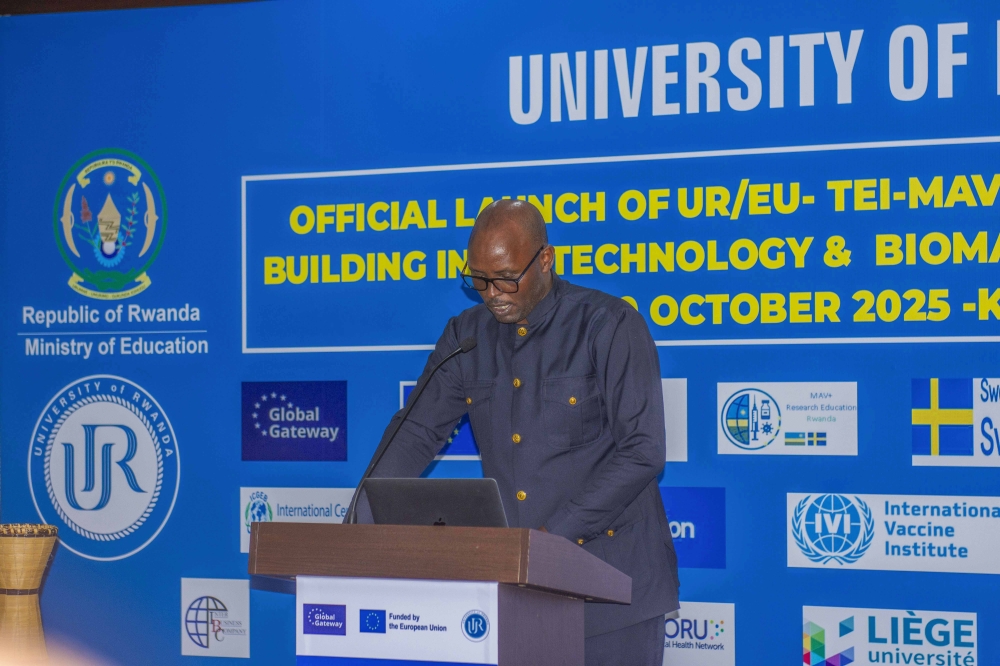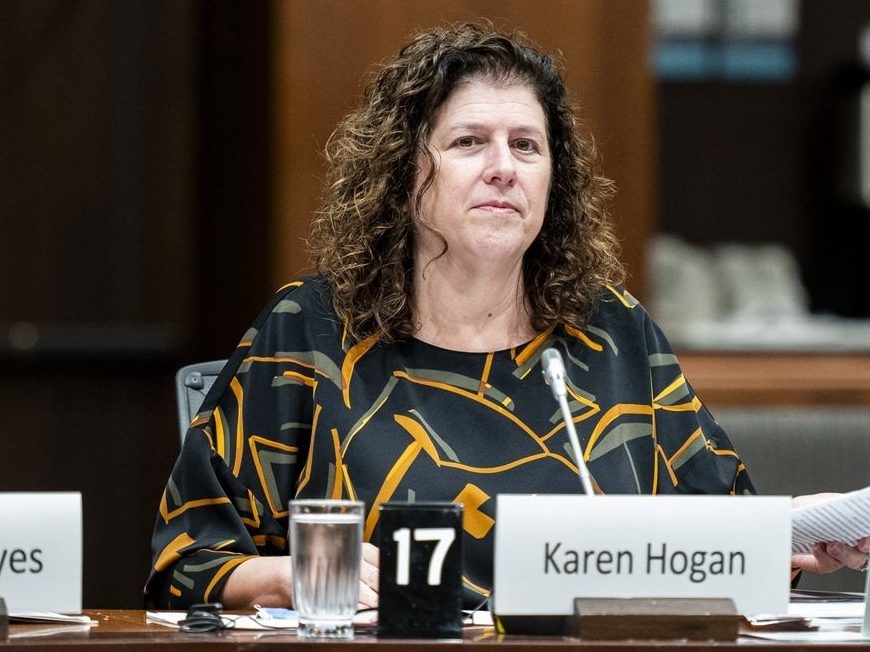The University of Rwanda is preparing the next generation of professionals for the bio-manufacturing sector as the country gears up for the production of vaccines and medicines.
With the recent graduation of 24 professionals in biotech, the university plans to produce close to 200 in less than five years.
Biomanufacturing utilises biological systems, such as cells and microorganisms, to produce products including medicines, vaccines, and bio-based materials.
ALSO READ: BioNTech secures up to Rwf160bn for vaccine production in Rwanda
The university is positioning itself as a key driver in developing a skilled workforce capable of meeting the demands of Rwanda’s burgeoning biotechnology and health sector. This workforce is being developed under the project Biotechnology and Vaccine Biomanufacturing Ecosystem and Capacity Building in Rwanda.
That is as the European Union (EU) has announced a €95 million (approximately Rwf160 billion) funding commitment to Rwanda to support the country’s efforts in scaling up vaccine manufacturing under a project called MAV+.
"There are various projects. One was funded by the European Union to boost the biotechnology ecosystem and manufacture drugs and vaccines. Part of it involves preparing courses to train researchers and experts, establishing laboratories, and conducting vaccine trials," said Didas Kayihura Muganga, UR Vice-Chancellor said on Monday, October 20, at the launch of the UR/EU-MAV+ Project in Kigali.
"We have master’s programmes in biotechnology—the first cohort has graduated. We have also initiated six other master’s programmes as part of capacity building."
At least 180 professions are expected to be developed in the next three years.
ALSO READ: BioNTech's vaccine plant in Rwanda gets over Rwf180bn boost
He added that the workforce being trained is also needed in institutions such as Rwanda Food and Drugs Authority, major hospitals, animal production, and other sectors.
Rwanda’s Vision 2050 outlines an ambitious pathway for the country to achieve upper-middle-income status by 2035 and high-income status by 2050. The strategy is anchored on pillars such as human development, competitiveness and innovation, agriculture for wealth creation, and capable institutions.
These priorities emphasise building human capital, strengthening research and innovation capacity, and fostering knowledge-based industries. This creates an enabling environment for the growth of biotechnology, biomanufacturing, and biomedical research as strategic areas contributing to improved health outcomes, socio-economic development, and sustainable growth.
The MAV+ project aims to build Rwanda’s human resource capacity in the biomanufacturing of drugs, vaccines, and other medicines.
Focus areas include the development of Master of Science (MSc) programmes in clinical trials, human genetics and genomics, infectious diseases, therapeutics, immunology, experimental medicine, bioprocessing engineering, chemical engineering, industrial pharmacy, and a PhD in translational health sciences.
ALSO READ: Rwanda unveils BioNTech’s first vaccine manufacturing plant in Africa
UR's MSc in Clinical Trials and the PhD in Translational Health Sciences programmes are now fully developed and accredited by the Higher Education Council (HEC).
The graduation of the first cohort of students marked a significant milestone in Rwanda’s journey towards becoming a regional centre of excellence in biopharmaceutical innovation and translational health sciences.
Boosting local manufacturing
"Only 1 per cent of vaccines used in Africa are manufactured on the continent. As Rwanda prepares for vaccine and drug manufacturing, our education system must develop a skilled workforce," said Pascal Gatabazi, Chief Technical Advisor at the Ministry of Education.
"At least 24 students graduated last week from the University of Rwanda. By 2040, leaders have committed to ensuring that 60 per cent of vaccines are made in Africa, and Rwanda is taking the lead. The workforce should come from Rwanda."
The MSc in Biotechnology programme was developed by the University of Rwanda’s College of Science and Technology in collaboration with national and international partners to address gaps in biotechnology training beyond the undergraduate level.
The programme aims to strengthen higher education, research, and innovation in biotechnology while contributing to Rwanda’s technological preparedness in the health, agriculture, environment, and industrial sectors.
Margueritte Marie Dusingizimana, a public health professional and biomedical laboratory scientist, has been selected to pursue the MSc in Biotechnology programme.
"It is a good opportunity for health professionals in biotechnology as Africa seeks to boost local production of vaccines and drugs on our continent and in our country. The country needs experts and researchers, and I am among those striving for expertise," Dusingizimana said.
Eric Tuyishime, who is pursuing a master’s degree in clinical trials, said there is a significant gap in knowledge related to clinical trials.
“We have medicine agencies headquartered in Rwanda. A vaccine and drug manufacturing plant is upcoming. Clinical trials are essential to ensure the safety of such products,” Tuyishime said.
The University of Rwanda has also launched a clinical trial project aimed at tackling anti-malarial drug resistance by exploring a fixed-dose Triple Artemisinin-based Combination Therapy (FD-TACT) for treating uncomplicated Plasmodium falciparum malaria. The clinical trial project will provide internships for some students.
Another project—Understanding How Genocide-Associated Lived Experience Impacts Post-Traumatic Stress Disorder in Rwanda—will serve as a research opportunity for PhD students in Human Genetics through collaboration with researchers involved in the initiative.






